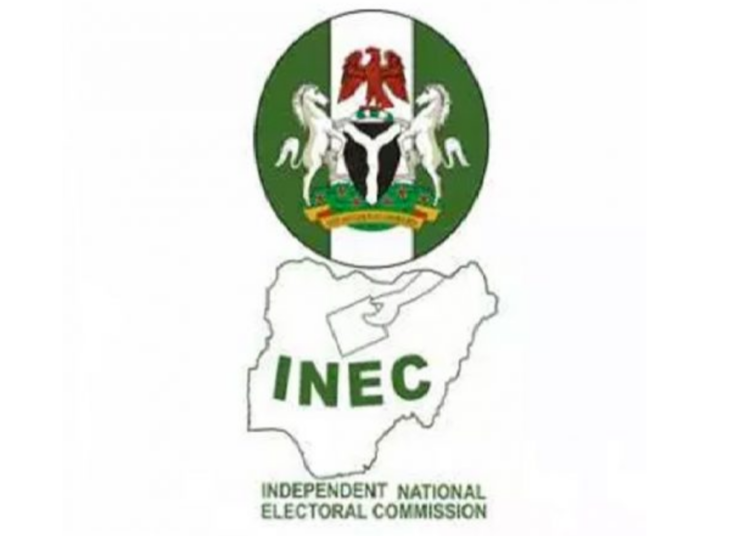The Independent National Electoral Commission (INEC) has stated that it was inappropriate to solely assess the credibility of the Commission or the conduct of the 2023 General Election on the number of petitions filed by litigants who, in any case, have the right to do so under the law.
In response to a recent news report titled “INEC’s credibility sinks as 94 per cent contested posts await tribunal,” the national commissioner and chairman of the Information and Voter Education Committee at the Independent National Electoral Commission (INEC), Sam Olumekun, in a statement on Thursday in Abuja explained that the report contained inaccuracies and called for a more balanced perspective on the matter.
Providing a detailed clarification on the situation, Olumekun pointed out several key issues with the report. Firstly, he highlighted that the report had inaccurate figures regarding the number of constituencies where elections were conducted in 2023.
He said the correct figures were 1,491 constituencies across the country, consisting of various positions.
According to him, “First, basic fact check on the information regularly published by the Commission and available on our website would have shown that in 2023, elections were not conducted in 1,280 constituencies, including 782 State Assembly seats. On the contrary, elections were conducted in 1,491 constituencies across the country made up of 1 Presidential, 28 Governorship, 109 Senatorial, 360 House of Representatives, and 993 State Assembly constituencies.
“Similarly, the claim that State Assembly elections were held in only 28 States of the country is made on the lazy assumption that no such elections were held in the eight States of the federation where executive elections are held off-cycle. As every attentive Nigerian knows, the tenure of legislators is tied to the legislative houses which is a fixed term of four years from the date the Assembly is inaugurated, unlike the term of office of the executive which begins from the date they take the oath of office.”
Secondly, he said the report incorrectly blamed INEC for pre-election cases arising from political party primaries.
He averred that these cases are intra-party matters and do not involve INEC in the primary election process.
Olumekun also addressed the fact that many litigants in Nigeria file election petitions for various reasons, and not all of these petitions have merit. In fact, 74.4 per cent of the petitions have been dismissed or withdrawn, demonstrating that the majority of them lacked merit.
“In pursuit of their right under the law, many litigants in Nigeria, unfortunately, file election petitions over the most improbable cases and later withdraw them or they are dismissed by the tribunals. If the report had taken time to analyse the outcome of the cases decided so far by the tribunals, it would have been discovered that out of 1,196 petitions, 712 were dismissed and 179 withdrawn.
“This means that in 891 cases (74.4 per cent), the tribunals found no merit in the petitions and affirmed the result of the elections conducted by INEC. It is surprising how the mere filing of petitions constitutes a blot on the integrity of the recent elections conducted by INEC when in fact they constitute an integral part of the democratic process,” he stated.
Furthermore, he explained that the report’s analysis of the total number of petitions was misleading, as it did not consider that multiple petitions can be filed for a single constituency, which distorts the percentage calculation.
Olumekun stressed that election petitions are not limited to challenging INEC’s conduct but can also involve the eligibility of candidates, which is a matter for the courts to decide, not INEC.
More so, he provided a comparative analysis showing that the number of election petitions may be rising, but the number of elections being nullified remains relatively low over the past three electoral cycles.
Olumekun noted that it is inappropriate to assess the credibility of INEC and the 2023 General Election solely based on the number of petitions filed by litigants, as they have the legal right to do so. He called for a more circumspect approach to reporting and urged the media to strengthen public institutions rather than impugn their integrity, especially when dealing with basic statistics.
The statement reads in part: “A comparative analysis would have addressed the deliberate effort in the report to portray the 2023 General Election as regressive on account of litigation without empirical evidence. Over the last three electoral cycles, the number of election petitions may be rising but not the number of upturned elections. In 2015, 663 cases were filed at the tribunals, 87 (13.1 per cent) were nullified and the Commission ordered to conduct a re-run in some polling units or entire constituencies.
“In 2019, 807 petitions were filed but elections were only re-run in 30 (3.71 per cent) constituencies (3 Senatorial Districts, 13 Federal Constituencies and 14 State Constituencies).
“While the 2023 post-election litigations are ongoing, all five petitions filed in respect of the Presidential election were dismissed while three are pending on appeal. As of Monday 16th October 2023, out of 82 Governorship election petitions, 72 (87.8 per cent) were either dismissed or withdrawn by the petitioners. For Senatorial elections, 146 petitions were filed out of which 100 (68.5 per cent) were dismissed or withdrawn. For the House of Representatives, 413 petitions were filed out of which 309 (74.81 per cent) were dismissed or withdrawn while for State Houses of Assembly, 550 petitions were filed out of which 468 (82.4 per cent) were dismissed or withdrawn.
“The Commission wishes to restate that it is inappropriate to solely assess the credibility of INEC or the conduct of the 2023 General Election on the number of petitions filed by litigants who, in any case, have the right to do so under the law.
“While we wish to restate our continuing partnership with the media, it is prudent to state that the pen should be used to strengthen rather than impugn the integrity of public institutions particularly where basic statistics demand that we should be circumspect.”





